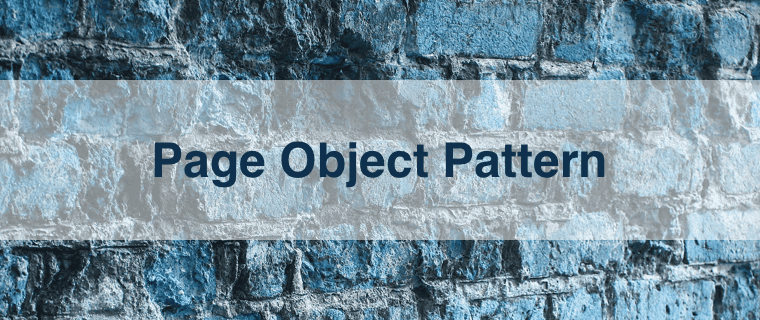Insights from the PHP Foundation Executive Director
I recently interviewed Roman Pronskiy, who works at JetBrains as the Executive Director of the PHP Foundation and has been a PHP dev since 2010. In this interview, Roman shared his insights and vision for PHP. Roman’s experience offers a unique perspective on the evolution and future of PHP. In this post, I will sum up the topics we discussed, from the Foundation’s milestones and ongoing projects to what lies ahead for the PHP community.
The Emergence of the PHP Foundation
Firstly, I wanted to hear directly from Roman how the PHP Foundation came to be:
“JetBrains hired Nikita Popov around 2018 and worked closely with him on modernizing PHP. They realised that the current model for supporting the PHP language was not sustainable. Despite PHP being widely used across the globe — from small projects to giant enterprises — the responsibility for its maintenance and development fell on the shoulders of only a handful of people. Recognising this imbalance and its potential risks, JetBrains decided to initiate the project, ensuring PHP would have the backing of a larger, more sustainable group of contributors.” — Shares Roman.
The Evolution of Confidence in PHP’s Future
I asked Roman about how his perspective has evolved since the PHP Foundation’s inception. His first post on the topic was full of uncertainty about the PHP future because of Nikita leaving, so it was interesting to see the change of perception: “Absolutely, we started because we saw the problem, we needed to act. We did, and now there are no doubts in the PHP's bright future. PHP is turning 30 next year and it’s as good as immortal at that point (laugh). I see a lot of new faces joining PHP and a lot of excitement in the community.”
PHP Foundation’s Initial Steps
Naturally, the Foundation's road to where it is now was quite long, so I asked about its humble beginnings: “The Foundation’s primary focus in its early days was straightforward: pay developers to maintain the language.” Roman emphasized, “Right now, we maintain a great pace to deliver big features every year.”
Milestones Achieved in Three Years
Later our discussion drifted to the most memorable achievements of the Foundation during those three years. “First two years of PHP Foundation we were figuring out the basics, what we want to achieve, how we would proceed with that goal and what people should be hired for that job.” — said Roman.
Property Hooks and PIE Tool
When the Foundation truly started to shine it’s in its third year: “These were much-needed features that nobody wanted to tackle for years,” Roman explained. PIE, a tool designed to simplify the installation of PHP extensions such as Xdebug, significantly enhances the developer experience.
“Extensions are now very close to being like packages; they basically look like Composer packages. It’s still open to discussion whether PIE will be part of Composer someday. It’s not decided yet, but I hope it will be,” Roman added.
These and other quality-of-life improvements have made the current state of the language much, much better.
Security Audits
With support from a German government-backed agency, the Foundation conducted extensive security audits, identifying and addressing some flaws. A public report will soon detail these findings.
Modernizing PHP.net website
PHP Foundation not only focuses on PHP core development but also does its best to ensure the growth of PHP's popularity. It is hard to discuss a language's future without considering how it is seen by new developers joining the market, or returning developers assessing if PHP would be a good choice. PHP.net is supposed to be the “face” of the language, so we started this discussion there:
“For years, the official PHP website didn't even mention popular 3rd party tools like Composer that nearly everyone uses. That's finally changing.” Besides that, Roman highlights incremental improvements, including better navigation, interactive code examples, analytics, and a new “Why PHP” page.
I wanted to know more about the changes that were made to php.net and those that are still in the plans. So I kept asking, and I got some interesting information:
“Recently, we went through many code examples on the page and checked them for possible vulnerabilities. We would also like to add more marketing to the website, including some case studies of companies that used PHP to great success and other mentions, examples, and statistics of PHP success. If you think about it — their success is also partly ours, and few people know how many great products are built with the help of PHP”
On a side note, it’s obviously still an open-source project. As I learned during the interview — the top bar of php.net recently was changed, the change itself was suggested by one enthusiast who worked a couple of months on that change, which was later approved.
Overcoming Challenges: AI and Performance
I was also wondering what the Foundation identifies as the biggest challenges for PHP right now. Roman shared his thoughts on that topic acknowledging the dual challenges of AI integration and performance:
“We cannot ignore AI and the industry trends,” he emphasises. “While PHP isn't primarily an AI language, it is crucial to ensure it works seamlessly with AI technologies. This includes improving HTTP interfaces and API handling capabilities. For example, persistent curl handles were implemented for PHP 8.5, which could significantly improve performance for applications making frequent API calls.”
On performance, he cites community-driven initiatives like FrankenPHP, which combines PHP with a Go web server. “What we want is to enable the community and unblock them on any issues so they can build amazing things on PHP. We are constantly in direct contact with products like FrankenPHP and if they encounter any issues — we prioritise resolving them”.
Generics in PHP
The question of Generics in PHP arises basically on every PHP event I went to, clearly, that’s the topic that is on the mind of many PHP developers, so it was worth discussing. Responding to the community’s interest in Generics, Roman explains: “We’ve invested heavily in researching how to tackle this. Our goal is to find the best solution for the community.”
PHP Foundation plans on scaling
I was interested in knowing if there are any plans to scale the Foundation's size in the near future.
“I would like to, but that definitely comes with challenges. First and foremost, there is the financial challenge. We are trying to plan the budget at least two years ahead to give our developers a sense of security. Second, as of now, we have 10 developers on board. Any more to that number will most likely require an addition to the leadership part of the team.
But for now, we would like to hire additional developers only for specific projects for a year or two. A good example would be the delivery of Generics we discussed prior. We also want to experiment with Rust in the PHP core, for that we would need someone extremely experienced in that specific area.”, Roman concludes.
Exploring Rust Integration in PHP Core
Intrigued, I wanted to know more about the reasoning for adding Rust to the PHP core.
“This is something we might like to try in 2025. It’s not about performance; it’s about safety and attracting more engineers. Starting with support for Rust extensions. You will be able to write extensions with Rust, install them with PIE and treat them as regular packages.”
Supporting the PHP Foundation
As a PHP developer myself and a co-founder of a company employing more than a dozen other PHP developers, I appreciate the Foundation's work and want to draw more attention to the ways companies or individuals can support it. So, I steered the discussion in this direction.
Financial Contributions
“The first and obvious answer to anyone who wants to help the PHP Foundation — You can always support us financially. All of our expenses are fully transparent and are published on our website.” — Roman starts.
Spreading the Word
“Articles, like yours, bring attention to our cause, help other developers and improve the community. We are also always happy to repost any valuable content on our social media to help those who support us.”
Roman also adds, “If you don’t have a direct line of communication with us — write public feedback, critique, suggestions, or anything that you find important. We would also happily share detailed case studies on how you used PHP to achieve success on our social media, as I mentioned previously — your product success is also partly ours.”
Providing Feedback
“Lastly, feedback from people like you helps us a lot. If you think about it, PHP core developers are not PHP developers themselves. They have a rough understanding of what they want to improve in the language, but I would bet that experienced PHP developers like you will have much-needed input for them to consider and address the issues better.
With the help of analytics on PhpStorm and php.net, we are getting some information, but the real feedback is even more helpful. I am constantly in discussions with PHP developers, and I am sure I will have some for you too, later on. A client can come to you and ask if they should upgrade to PHP 8.4 or rewrite the project in Golang, which is also the worst decision they can ever make. But If such concerns arise in your clients, you know where they stem from, and that’s extremely valuable information for us.“
Final questions
Wrapping up the interview, I wanted to know Roman`s favourite sources for keeping up to date with PHP news: “The research I do for my newsletter PHP Annotated is usually more than enough. I get the information by following and directly talking to cool people in the community on Twitter (now X), Bluesky, or Mastodon. This newsletter should cover all the news of the ecosystem,” said Roman.
Conclusion
As Roman Pronskiy aptly puts it, “PHP is as good as immortal.” As PHP approaches its 30th anniversary, the language continues to evolve at a never-before-seen pace — now under the stewardship of the PHP Foundation. With a focus on innovation, security, and community engagement, the future of PHP shines brighter than ever.



